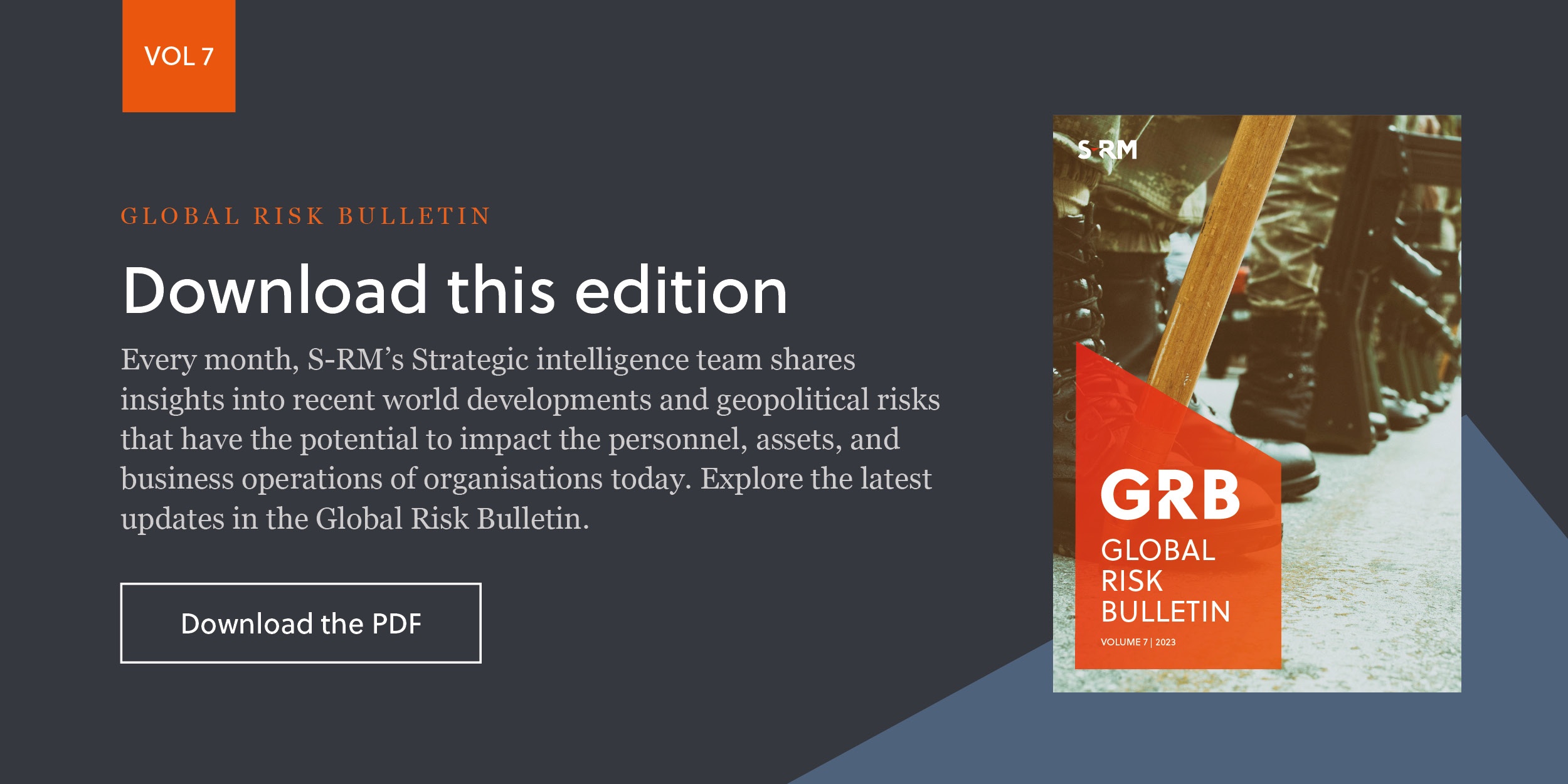Tamsin Hunt assesses Ecuador's security environment following the assassination of presidential candidate Fernando Villavicencio and explores the deep-seated challenges facing the incoming administration.
On 9 August, Ecuadorian presidential candidate Fernando Villavicencio was shot and killed by criminal elements while leaving a campaign event, shining the global spotlight on rising crime and associated political tensions in the small Andean country. Taking place just days before the snap presidential elections on 20 August, Villavicencio’s death has not only exposed the degree to which organised crime groups have expanded their influence and consolidated control throughout the country, but also the extensive security challenges facing Ecuador’s next president.
Political assassinations
Political killings have become increasingly common in Ecuador as a result of organised crime groups’ conscious and successful efforts to influence local government and electoral processes in order to sustain and expand various criminal enterprises.
According to the Armed Conflict Location & Event Data Project, only seven incidents of violence against an elected official or their families took place between 2018 and 2021. By 2022, that number had escalated to 36, followed by another 18 in the first seven months of 2023 in the lead-up to the February local elections, and the August presidential vote. Consequently, the August presidential election took place under military guard. The armed forces took control of security at all electoral precincts a full three days prior to the polls; a total of 96,000 police and military officers were deployed countrywide; and voters were advised against carrying any packages or backpacks amid stringent security measures. The election passed without major incident, and a healthy 82 percent of Ecuadorian voters turned out to make their mark on the ballot. The election result may have been inconclusive – forcing frontrunners Luisa González and Daniel Noboa to head to an October run-off – but regardless of who wins, the rising issue of political killings, with its roots in organised crime, looms large.
Political killings in Ecuador 2022 – 2023

Rampant crime
A pressing issue for the next administration will be addressing violent crime in the country. Ecuador’s homicide rate has increased five-fold, from 5.8 per 100,000 in 2016 – one of the lowest in Latin America – to a staggering 26.1 in 2022. Further, extortion and kidnapping have become common in most major cities. The government increasingly resorts to imposing states of emergency – particularly in the coastal provinces of Manabí, Esmeraldas and Guayas – in repeated (but inadequate) efforts to stem the rising tide of crime. By corollary, businesses are often forced to close early due to safety concerns and curfews, army patrols in urban streets have become a familiar sight, and hundreds of thousands choose to migrate out of the country every month rather than face violence and unemployment at home.
Corroded institutions
Although violent crime was at the forefront of every presidential candidate’s campaign ahead of the August election, resolving the issue will be no easy task for the next administration. The high rate of violent crime is but a symptom of deeper, structural problems. Each previous administration has had a hand in eroding Ecuador’s security and judicial institutions over the past decade, weakening the county’s ability to control the transnational drug trade and combat rising crime. President Rafael Correa’s administration (2007-2017) closed down the Special Investigations Unit in 2009, and effectively dismantled the US-backed narcotics surveillance and security system between 2009 and 2014. The next administration under Lenín Moreno (2017-2021) fared a little better but demolished the Correa-era Ministry of Justice and cut the prison budget by 30 percent. The prison system – weakened by years of overcrowding and underfunding – is now strongly under the influence of criminal gangs and corrupt officials. As a result, weapons are freely available to inmates, and deadly prison riots have become frequent.
"Each previous administration has had a hand in eroding Ecuador’s security and judicial institutions over the past decade."
Enabled by successive governments' neglect, criminal elements have penetrated deep into state institutions, including the police, judiciary and the army, creating a permissive environment in which criminal gangs operate with near impunity. Individuals on the ground have little institutional support, and local officials and political leaders are often faced with a choice between accepting either a bribe or a bullet – a choice between silver or lead – perpetuating the cycle of institutionalised criminality.
Economic underperformance
Added to this, economic challenges in Ecuador are mounting. Rampant crime and frequent states of emergency are weighing on investor confidence and local business activity, limiting Ecuador’s growth prospects and the country’s ability to shed its dependence on oil exports. Poverty remains high, at 27 percent in June 2023, and formal employment is extremely low, at around 35 percent. Elevated rates of poverty and unemployment will only serve to create an ideal environment for criminal gangs, increasing recruitment opportunities in communities desperate for income. To relieve the pressures of violent crime on the economy, Ecuador’s next administration is faced with the tough task of curbing the power and influence of entrenched organised crime groups.
Time is short
The world will be watching to see if the next administration can meaningfully address violent crime and alleviate economic pressures, or fall into the all-too-common political trap of papering over the cracks in pursuit of the next election win. Given that the winner of the October 2023 run-off election will have only 17 months in office – the remainder of former President Guillermo Lasso’s term – the likelihood of any incoming administration overhauling the current situation is low. As long as short-term measures that bring temporary relief to Ecuador’s challenges remain the modus operandi, the power and influence of criminal gangs will be largely unchecked, and the country’s security environment will continue to deteriorate over the coming year.





